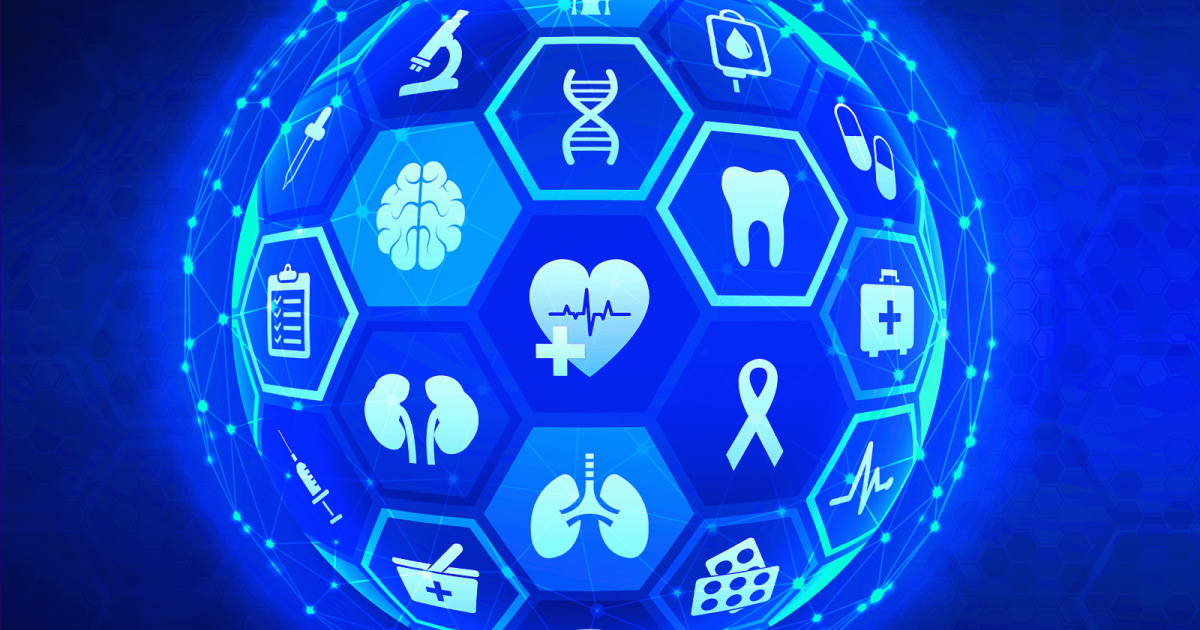
How Are Telemedicine, AI and Genomics Shaping Health Tech?
23 Apr, 20245 mins
Some of the most impactful real-world use cases of recent technological developments are happening in healthcare. For example, healthcare generates more data than any other industry — but, without assistance from big tech, doesn’t have the capacity to process and therefore utilise it.
Three fields in particular are changing the face of healthcare: telemedicine, artificial intelligence (AI) in drug discovery, and genomic sequencing.
Digital Doctors — The Rise of Telemedicine
Health services over the world are under strain. The UK’s NHS, for example, is currently short approximately 121,000 full-time equivalent employees. The potential impact on patient wellbeing is a headache for both governments and the organisations delivering healthcare.
Telehealth services such as Doccla are proving that technology can help alleviate this burden. Doccla provides ‘virtual wards’: technology and equipment allowing patients that would otherwise remain under observation in hospital to instead return home, where their vital metrics are continuously monitored.
As CCO Tom Breeze explained to Oho Group, Doccla addresses three key challenges: workflow costs, interoperability, and balancing regulatory compliance and agility.
Workflow costs are the core of Doccla’s value-add. “If you can’t make it massively easier and cheaper for a clinician to care for a patient through your service, then they won’t use it — and why should they?” says Breeze.
As such, clinician UI and efficient patient-facing care are paramount. Doccla triggers calls to patients when they haven’t submitted their vitals online, and can enable clinicians to prioritise the most urgent results so that patients most in need receive care fastest.
Regulatory compliance, Breeze says, “is one of the biggest challenges in healthcare: How do you ‘move fast and break things’ in a heavily regulated industry where patients' lives are at stake?” For Breeze, the answer lies in designing systems appropriately in order to leverage new approaches to software development lifecycles that enable much faster regulatory approval for product updates.
Doccla stands well positioned to transform the quality and affordability of care. It has been found to save the NHS at least £3 for every £1 spent on the service, and as Breeze highlights, “we see a reduction in admissions of 40-50% for some of our patient cohorts, which is an incredible win for patients as well as financially transformational for health systems.”
AI-ding Discovery
Among all the potential use cases for AI, one of the most promising is in drug discovery.
Linguamatics — part of IQVIA — develops natural language processing (NLP) software that speeds the process of drug discovery by rapidly mining scientific literature. In other words, rather than pharmaceutical researchers needing to manually read hundreds of research papers, which can themselves be hundreds of pages long, they can use Linguamatics software to mine banks of papers for relevant information.
Some tools go even further, and make predictions about possible drugs based on the properties of certain compounds. Healx, for example, takes literature analysis (similar to that provided by Linguamatics), and combines it with data on diseases as well as biochemical data.
It then applies AI reasoning to these inputs in order to directly predict new disease-compound relationships; in other words, its software automatically suggests compounds that could make effective disease treatments.
Start-ups seeking to harness this potential are booming. BenchSci, a Google-backed startup with offices in Toronto, Canada and Cambridge, UK, creates ASCEND, a generative AI platform that understands disease biology and can use this to further accelerate drug discovery.
Approaches like these have massive potential. Historically, the process of discovering and developing treatments for new diseases can take 12 years or more. While it is currently early days for AI to completely displace this process, it has the potential to drastically reduce the time, cost, and uncertainty that currently make the process of drug discovery a risky, expensive business.
The Genomic Holy Grail
Advances in gene sequencing technology have put humanity on the verge of one of medicine’s holy grails: a cure for cancer.
Multi-cancer early detection (MCED), such as Grail’s Galleri test, can screen blood samples for the presence of genetic material shared by common cancers. Screening for cancer via blood tests like this can potentially lead to earlier diagnosis, which in itself has the potential to greatly increase survival rates.
Additionally, understanding the genetic makeup of cancers means that treatments can be developed to target specific cancers individually. In other words, rather than the blunt, invasive process of chemotherapy, patients can be given less invasive treatments that are specifically tailored to their own cancer.
There are various types of genomic-based cancer treatments. Astrazeneca, for example, identifies six:
- Immuno-oncology, which attempts to boost the body’s own natural immunological defences to cancerous cells.
- Tumour Drivers and Resistance, which target the mutations in cancerous cells that enable them to evade these natural defences.
- DNA Damage Response, which enhances the DNA process, preventing the development of cancerous cells.
- Antibody Drug Conjugates, which use a linker attached to a targeted antibody to inject cancer-killing drugs directly into cancer cells.
- Cell therapy, which uses engineered T cells (a form of white blood cell that forms the body’s natural defence to most diseases) to identify and eliminate cancerous cells.
- Epigenetics, which examines how genes are expressed and inhibits key processes in cancerous cells.
While still in their early stages of development, these technologies, in combination, point the way towards a future in which cancer is significantly easier to diagnose and treat than it has ever been before.
There is no doubt that healthcare is a field in which technology has almost endless potential to increase human wellbeing. We’re looking forward to seeing how innovation continues to shape this field over the coming years.
If you want to be part of this revolution, contact Oho Group to connect to health tech’s greatest innovators.

